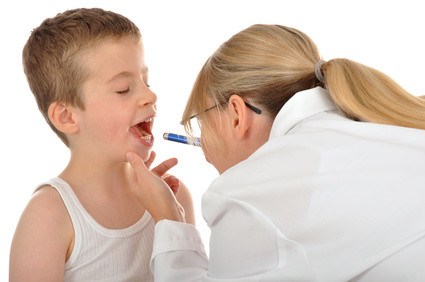Metallic Taste in the Mouth – Causes and Warning Signs
It is not unusual to experience strange tastes in the mouth even without eating or drinking anything. These abnormal tastes typically last for a few seconds or minutes and resolve. However, there are cases where there is a persistent abnormal taste and this could be a symptom of some underlying disease. A metallic taste in the mouth may not be a cause for concern. However, if it persists or recurs frequently then it should be investigated.
The taste buds are specialized receptors that are abundant on the tongue. These receptors are stimulated when they make contact with chemicals in food and beverages within the mouth. It sends signals back to the brain. The taste centers in the brain decipher the signal and this is how we experience the sense of taste. Olfaction, the sense of smell, also plays a role in the sense of taste.
Is a metallic taste a warning sign?
Yes. A metallic taste may be a warning sign of some underlying disease but should be considered along with other signs and symptoms. Possible causes of this abnormal taste sensation, which is medically known as dysgeusia, can vary. A metallic taste in the mouth on its own may be due to harmless causes. Therefore diagnostic investigations may also be necessary to confirm the cause.
Causes of Abnormal Metallic Taste
Some combinations of foods and beverages can cause an abnormal metallic taste when it mixes in the mouth. It is more pronounced in foods with a metal content. This is not a cause for concern and may be quickly flushed with drinking water. A bitter metallic taste may occur a few days after eating pine nuts. This rare condition is known as pine mouth syndrome and usually resolves within a few days to weeks.
Another cause that needs to be considered is blood in the mouth which many people describe as a metallic taste in the mouth. There are various causes of blood in the mouth, including injury to the mouth, nose or head, gum disease or conditions that may lead to nosebleeds. Blood can also arise from the esophagus or airways and lungs and then be passed up to the mouth with reflux and mucus.
Environmental
Inhaling metallic dust or gases containing metallic compounds can cause a metal taste in the mouth. It may not always be obvious that metals have been inhaled through the nose or mouth. Most of the time this occurs in the occupational setting. Welders, for example, are exposed to metallic gas compounds like zinc oxide. They are more likely to experience known as metal fume fever.
Medication and Supplements
Certain drugs may also be responsible for a metallic taste and sometimes even a metallic smell. It is not the metal in these drugs but rather the even of these drugs on taste perception. This type of side effect is more likely to be occur with certain antibiotics, gout medication, heart disease medication and some psychiatric drugs. A metallic taste in the mouth can also occur as a side effect of cancer treatments, including chemotherapy and radiation therapy.
Some nutritional supplements may also be the cause of a metallic taste in the mouth. Naturally this is more likely to occur with supplements that contain metals, like iron or zinc supplements. A similar effect may be seen with drugs or supplements that contain metals for various reasons, such as treating deficiencies or enhancing drug action.
Dental Conditions
Various dental conditions may cause a metallic taste in the mouth. Sometimes this may occur with dental cavities but an abnormal metallic taste is more likely to occur with gingivitis and periodontitis. There may be other symptoms like gum bleeding, pain and bad breath along with the metallic taste in the mouth.
It can also occur in a more severe dental condition known as acute necrotizing ulcerative gingivitis (ANUG). Practicing good dental hygiene can help to prevent these conditions. A metallic taste can also be associated with broken amalgam fillings, particularly the older fillings.
Sinus Conditions
The paranasal sinuses connect to the nasal cavity which in turn connects to the mouth cavity. Problems within the sinuses may give rise to abnormal smells and tastes. Usually acute sinusitis is due to a bacterial or viral infection. This causes sinus pressure often with headaches and is usually accompanied by nasal congestion. It is not uncommon for a person to report a foul odor along with a metallic taste in the mouth.
Pregnancy
Sometimes symptoms like an abnormal taste in the mouth may occur with pregnancy. The elevated hormone levels associated with pregnancy can affect sensory perceptions, such as taste and smell. Similar to food cravings and being repulsed by certain odors, these abnormal tastes are usually temporary and pass sometimes within pregnancy or shortly after childbirth. It is usually not a cause for concern.
Acid Reflux
A common cause of a metallic taste in the mouth, typically a bitter metallic taste, is acid reflux. This is where the stomach contents, including digestive enzymes, stomach acid and sometimes partially digested foods, flows backwards into the esophagus. In severe cases and particularly when lying down, the acid and enzymes can reach the throat and even the mouth. Often it is worse in the morning and a bitter metallic taste is evident upon waking.
Other Causes
A metallic taste in the mouth can also occur as a symptom of several other diseases, including:
- Kidney diseases which may arise for various reasons including severe infections, diabetes, hypertension or diseases like systemic lupus erythematosus (SLE).
- Traumatic brain injury is another possible cause. Certain areas of the brain that decipher signals from the taste buds (taste centers) may be affected and give rise to a metallic taste. This may sometimes occur with brain surgery.
- Dementia is also a possible cause of abnormal taste sensations. It arises wen certain parts of the brain that may also include the taste centers are impacted.
- Neuropathy is a broad term for nerve injuries, diseases and disorders. If the nerve that carries taste signals from the taste buds to the brain are affected, then abnormal tastes may arise.








